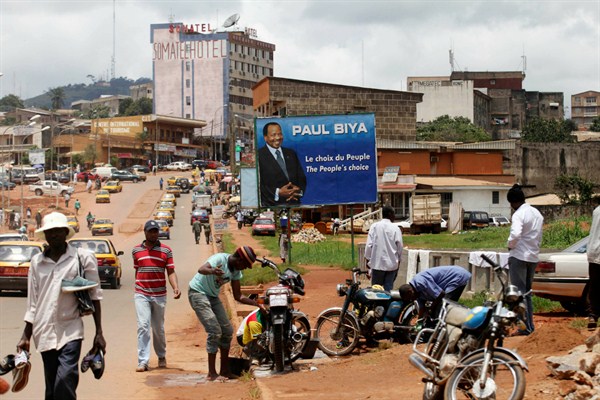YAOUNDE, Cameroon—In June, gay rights activists in Cameroon were dealt a disheartening setback. While revising the Central African country’s penal code, parliament voted to retain a notorious anti-gay provision dating back to 1972. Under the law, known as Article 347 bis, which has enabled the prosecution of dozens of Cameroonians in recent years, same-sex sexual acts between consenting adults are punishable with fines of more than $300 dollars and prison terms of up to five years.
Though some lawmakers privately question whether policing alternative sexualities should be a government priority, none was willing to take this position publicly. The only objection to renewing Article 347 came from those who wanted the maximum prison term doubled. Public debate over the penal code also laid bare anti-gay sentiment among ordinary Cameroonians. An HIV/AIDS prevention and treatment organization, Alternatives-Cameroon, that advocates for the human rights of sexual minorities reported that photos of multiple staffers were widely shared on social media, accompanied by homophobic slurs and threats.
Cameroon’s most prominent gay rights groups began their work about a decade ago, in the aftermath of a May 2005 raid on an underground gay bar in Yaounde, the capital. The raid led to the incarceration of 11 men—nine of whom were held for over a year—and brought global attention to the harsh treatment of sexual minorities in the country for the first time. In the movement’s early days, activists were almost singularly focused on responding to cases brought under Article 347 and fighting to get the law changed.

